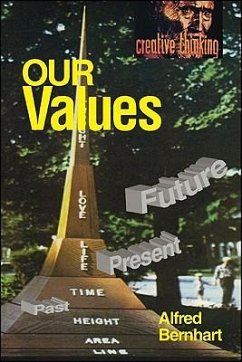At a time when the values of a money-oriented economy conflict with attempts to bring the values of well-being and quality of life to prominence, knowledge of trends in the development of values will help smooth the transition. The presented theory of changes in values connects perception of each value with one of seven "dimensions": from the value of distance, area and height, through the importance of time (time/money), into quality of life, community/togetherness, and finally creative thinking. While these predictions can be applied to all groupings of mankind, they are used here to describe the progress in multilingual Western European and North American society. History helps to explain the multidimensionality of our value judgments. For example, the importance of the value of DISTANCE was replaced by AREA (for crop growing) where hunting was superseded by seeding and harvesting. With the development of urbia, HEIGHT became a more dominant value. In the present we experience the supressingly dominant TIME-related value of money. More harmony will soon be achieved in the near future by the increasing acceptance of the importance of LIFE-related values which will bring improved health to all of mankind. Complementing these values will be an increasing emphasis on COMMUNITY and TOGETHERNESS, with meritocratic government, education in philosophical thought for the betterment of society, improved urban development, as well as environmental considerations. In the far future, the rising impact of CREATIVE THINKING will favor intellectual over physical objectives, leading to a merging of scientific and spiritual thought.
Hinweis: Dieser Artikel kann nur an eine deutsche Lieferadresse ausgeliefert werden.
Hinweis: Dieser Artikel kann nur an eine deutsche Lieferadresse ausgeliefert werden.









